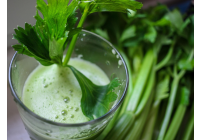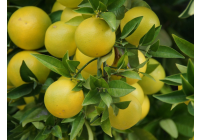
The use of supplements filled with antioxidants, among others to improve or maintain cognitive functions, has become a subject of interest over the past few years. Astaxanthin is one of them with a great potential that is the subject of several studies.
What is astaxanthin?
It is the pigment responsible for the orange color of salmon and seafood. It is a xanthophyll carotenoid that is extracted from an alga (Haematococcus pluvialis) for supplements. It is believed to have powerful antioxidant properties.
Astaxanthin is used as a nutritional supplement, antioxidant and anticancer agent, prevents diabetes, cardiovascular disease and neurodegenerative disorders, and stimulates immunization. The effects of astaxanthin on human nutrition have been published by various authors. Astaxanthin supplementation at 3.6 mg per day may be beneficial to health, as reported by Iwamoto et al.1
Some studies on different effects
Anti-inflammatory effects
According to a study conducted to determine the effects of astaxanthin supplementation in type 2 diabetic patients whose pathogenesis is associated with chronic oxidative stress and inflammation. It turned out that astaxanthin showed a protective effect on oxidative stress induced by high glucose and would therefore have a significant anti-inflammatory impact. 2
Effects on mental fatigue
Another study aimed to evaluate the effect of dietary supplementation with astaxanthin and sesamin (AS), powerful dietary antioxidants, on fatigue, as severe fatigue can negatively affect quality of life and oxidative stress may play a role in its mechanism.
Secondary endpoints included other subjective feelings, work efficiency, autonomic nervous activity, levels of an oxidative stress marker and safety. Part of the group should take the supplement and part should take a placebo. SA supplementation was associated with significantly improved recovery from mental fatigue compared to placebo. In conclusion, SA supplementation may promote recovery from mental fatigue that is experienced by many healthy people. 3
Effects on cognitive functions
Another study was done to evaluate the effects over a period of 6 and 12 weeks of taking a supplement containing astaxanthin and sesamin in a group of healthy people with mild cognitive impairment. The results supported that daily use improved cognitive function. 4
Effects on the skin
The ability of the seaweed itself to protect itself from the effects of intense ultraviolet radiation may help prevent sunburn. Astaxanthin may prevent skin thickening and reduce collagen reduction against UV-induced skin damage. 5, 6, 7
Doses as low as 2 mg per day help to improve skin barrier integrity (helping, among other things, with better hydration) and elasticity to counteract sun damage.8
However, it takes a few weeks for the pigments to accumulate in the tissue. At 6 mg per day for 8 weeks, there is an improvement in crow's feet (small wrinkles near the eyes), wrinkles, elasticity and transdermal water loss.9
Similarly, by taking 2 to 4 mg of astaxanthin per day for a few weeks prior to taking an X-ray or CT scan, some degree of protection against exposure to these radiations can be gained. 10
References:
1. Iwamoto T., Hosoda K., Hirano R., Kurata H., Matsumoto A., Miki W., Kamiyama M., Itakura H., Yamamoto S., Kondo K., Inhibition of low-density lipoprotein oxidation by astaxanthin. J. Athéroscler. Thromb. 2000; 7: 216–222. https://pubmed.ncbi.nlm.nih.gov/11521685/
2. Nafiseh Shokri-Mashhadi, Maryam Tahmasebi, Javad Mohammadi-Asl, Mehrnoosh Zakerkish , Majid Mohammadshahi. The antioxidant and anti-inflammatory effects of astaxanthin supplementation on the expression of miR-146a and miR-126 in patients with type 2 diabetes mellitus: A randomised, double-blind, placebo-controlled clinical trial. Int J Clin Pract. 2021 May;75(5): e14022. doi: 10.1111/ijcp.14022. Epub 2021 Feb 2. https://pubmed.ncbi.nlm.nih.gov/33445213/
3. Ayano Imai, Yuriko Oda, Naoki Ito, Shinobu Seki, Kiyotaka Nakagawa, Teruo Miyazawa, Fumitaka Ueda. Effects of Dietary Supplementation of Astaxanthin and Sesamin on Daily Fatigue: A Randomized, Double-Blind, Placebo-Controlled, Two-Way Crossover Study. Nutrients. 2018 Feb 28;10(3):281. doi: 10.3390/nu10030281. https://pubmed.ncbi.nlm.nih.gov/29495607/
4. Naoki Ito, Hitomi Saito, Shinobu Seki, Fumitaka Ueda, Takashi Asada. Effects of Composite Supplement Containing Astaxanthin and Sesamin on Cognitive Functions in People with Mild Cognitive Impairment: A Randomized, Double-Blind, Placebo-Controlled. J Alzheimers Dis. 2018;62(4):1767-1775. doi: 10.3233/JAD-170969. https://pubmed.ncbi.nlm.nih.gov/29614679/
5. Ranga Rao A., Sindhuja HN, Dharmesh SM, Sankar KU, Sarada R., Ravishankar GA. Effective inhibition of skin cancer, tyrosinase, and antioxidative properties by astaxanthin and astaxanthin esters from the green alga Haematococcus pluvialis. J. Agric. Chimie alimentaire. 2013; 61 :3842-3851. https://pubmed.ncbi.nlm.nih.gov/23473626/
6. Hama S., Takahashi K., Inai Y., Shiota K., Sakamoto R., Yamada A., Tsuchiya H., Kanamura K., Yamashita E., Kogure K. Protective effects of topical application of a poorly soluble antioxidant astaxanthin liposomal formulation on ultraviolet-induced skin damage. J.Pharm. Sci. 2012 ; 101 :2909–2916. doi: 10.1002/jps.23216. https://pubmed.ncbi.nlm.nih.gov/22628205/
7. Santos SD, Cahú TB, Firmino GO, de Castro CC, Carvalho LBJ, Bezerra RS, Filho JL Shrimp waste extract and astaxanthin: rat alveolar macrophage, oxidative stress and inflammation, J. Food Sci. 2012; 77:141–146. https://pubmed.ncbi.nlm.nih.gov/22757706/
8. Yoon HS, Cho HH, Cho S, et al. Supplementation with dietary astaxanthin combined with collagen hydrolysate improves facial elasticity and decreases matrix metalloproteinase-1 and -12 expression: a comparative study with placebo. J Med Food. 2014 Jul;17(7):810-6. doi: 10.1089/jmf.2013.3060. PubMed PMID: 24955642. https://www.ncbi.nlm.nih.gov/pubmed/24955642
9. Tominaga K, Hongo N, Karato M, Yamashita E. Cosmetic benefits of astaxanthin on humans’ subjects, Acta Biochim Pol. 2012;59(1):43-7. PubMed PMID: 22428137. https://www.ncbi.nlm.nih.gov/pubmed/22428137
10. John E. Dore, Ph.D. Astaxanthin and Cancer Chemoprevention, Cyanotech Corporation, Kailua-Kona, Hawaii, USA. https://www.cyanotech.com/pdfs/bioastin/batl08.pdf



